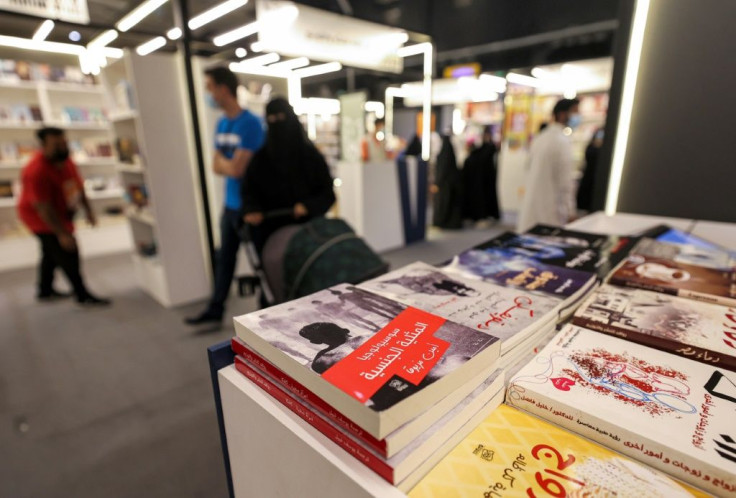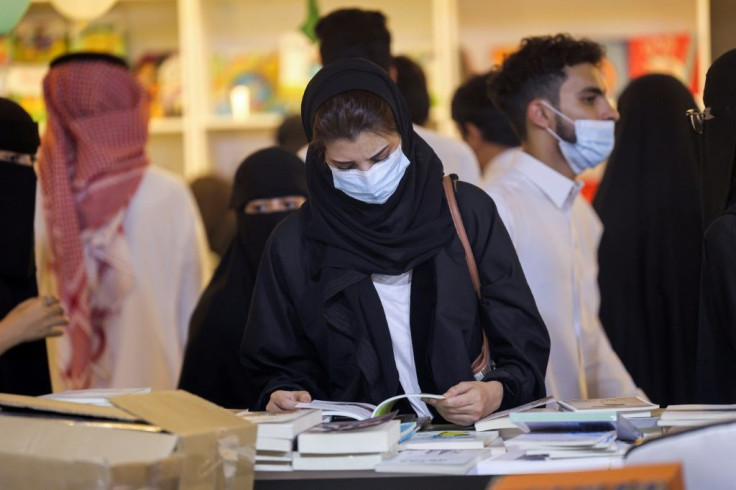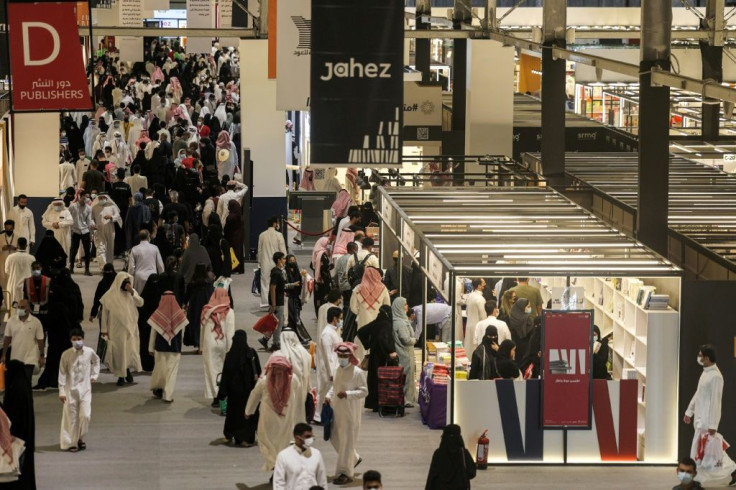'Bold' Titles Break Taboos At Saudi Book Fair
Books on long taboo subjects like intimacy, secularism and magic were among those on display at the Riyadh book fair this month, as Saudi Arabia seeks to modernise its ultraconservative image.
But despite the exhibition of works long rejected as un-Islamic by Saudi authorities, some publishers said they continue to practise a form of self-censorship while the new boundaries remain unclear.
Since Mohammed bin Salman was appointed crown prince in 2017, the kingdom has undergone economic, religious and social reforms.
Changes have included allowing women to drive, the reopening of cinemas and mixed-gender music concerts.

But reforms have been accompanied by a widening crackdown on dissent, which has seen women's rights activists, clerics and journalists detained.
A US intelligence report accused the crown prince of approving the 2018 brutal murder of journalist Jamal Khashoggi in the Saudi consulate in Istanbul.
And there remain many conservatives in the kingdom who fear that the abandonment of long-held traditions will stoke "public immorality".
Mahmoud al-Qadoumi, a long-time Jordanian resident of Riyadh, said the selection at the 10-day book fair, which ended earlier this week, was "bold and unprecedented".
"There are books on Sufism and atheism, which is contrary to what has been the case for many years," he said.

He pointed to a science book he had purchased on the origins of the universe that made no reference to divine creation.
Saud Kateb, a member of the Saudi Society for Opinion Writers, recalled past years when the religious police would "storm cultural events to stop them and to prevent the participation of women".
In 2014, AFP cited a local newspaper report that said organizers of that year's book fair had confiscated more than 10,000 copies of 420 books.
Now that the powers of the religious police have been clipped, "the level of freedom is completely different," Kateb said.
Saudi visitor Abdulaziz al-Turki said he found some books at this year's fair "shocking" because they "do not fit into the country's cultural heritage".

There was also some online backlash, with one Saudi tweeting that there was "shameful content" at the fair, an assertion he illustrated with books entitled "My friends are dogs" and "I shaved my beard".
However many other Saudis expressed delight at the range of titles on show.
Acting media minister Majid al-Qasabi said books lay "at the heart" of the government's reform campaign.
"It is no longer possible to withhold books in an electronic era," he told AFP, adding it was all being shared online anyway.
Egyptian publisher Islam Fathi, who exhibits in Riyadh every year, said he had brought in books he had "never thought of even suggesting" before.
They included works by Russian novelists Leo Tolstoy and Fyodor Dostoyevsky, and English writer George Orwell's "Animal Farm" and "1984".
Another publisher, from Lebanon, said there was still some self-censorship, as exhibitors worried about going too far.
"We are now bringing in more 'open' books but within limits as we self-censor," the man, who spoke on condition of anonymity, told AFP.
"No one wants to risk a huge financial loss" if a shipment is confiscated.
A publisher from Egypt said that lingering censorship fears had been fuelled by the confiscation of all copies of one title at this year's fair, a work entitled "God's plan for the management of the universe."
He said authorities had given no reason for the confiscation
"Some things are not clear, which prompts us to self-censor," he said.
© Copyright AFP 2024. All rights reserved.





















